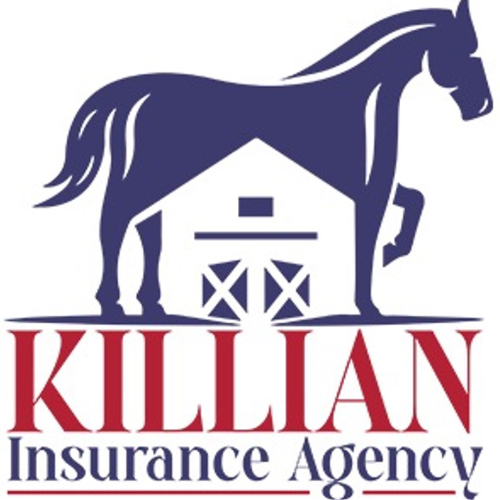Many people with disabilities or mental health issues seek out service animals to help with their daily
lives. A lesser-known option is the miniature horse service animal. These animals can offer support
similar to traditional service dogs but bring unique benefits.
This blog post will explore the special traits and tasks of miniature horses as service animals.
Miniature horses stand out because of their calm nature and long lifespan. They can work for over 25
years, providing consistent support. We will also discuss how they assist people in managing conditions
like PTSD, depression, and anxiety through pet therapy and emotional support.
- Miniature horses live 25 to 35 years, providing a long-term service animal option. This is longer
than the lifespan of many traditional service animals. - They are cost-effective due to their longevity and have fewer overall expenses compared to
guide dogs. Training and care savings make them an economical choice for individuals needing
support. - These animals receive better public acceptance thanks to their calm nature and unique
appearance, making interactions easier for those with disabilities or mental health conditions. - Miniature horses serve as guide animals, medical alert responders, and mobility assistants.
Their training under ADA regulations ensures they perform essential tasks effectively. - People often find miniature horses less likely to trigger allergies. This makes them suitable
companions for those sensitive to other animals.
What Makes Miniature Horses Unique as Service Animals?
Miniature horses stand out as service animals because they possess a calm nature and high stamina.
Their long lifespan allows them to provide support for many years, making them valuable companions
for those in need.
Long lifespan
Miniature horses typically live longer than many other service animals. They can enjoy a lifespan of 25
to 35 years. This longevity makes them great companions for people who need assistance.
The extended life of these small horses means they provide support for many years. Their long working
lifespan stands out compared to larger animals, like dogs.
The unique benefits of miniature horses as service animals do not stop at their lifespan. They also cost
less over time than traditional guide or assistance animals.
Cost-effective
Miniature horses offer a cost-effective option as service animals. Compared to traditional guide dogs,
they often require lower overall expenses. Their long lifespan means they can work for many years,
providing assistance for an extended period.
This longevity reduces the need for multiple animals over time, saving money on training and care.
Training costs can vary but tend to be manageable due to their calm nature and high stamina. Many
organizations also provide resources and support for animal training, making it easier for owners.
Miniature horses are generally accepted in public places, which helps eliminate additional fees
associated with service animal access regulations under ADA laws.
Better acceptance
Miniature horses enjoy better acceptance as service animals compared to some other options. People
often feel more comfortable around them. Their calm nature makes interactions easier.
Many communities embrace these equine helpers, recognizing their role in assisting those with visual
impairments or emotional support needs.
Studies show that people are more open to therapy animals like miniature horses than traditional dogs.
This acceptance stems from their friendly demeanor and unique appearance. Miniature horses can
serve as effective psychiatric service animals too, supporting individuals dealing with PTSD or anxiety
disorders.
Calm nature
Miniature horses have a calm nature that sets them apart as service animals. Their gentle demeanor
helps people feel relaxed and safe. These horses do not startle easily, which is crucial for those with
anxiety or PTSD.
Their presence can soothe individuals who require emotional support animals. This makes them perfect
companions in various situations.
Their steady behavior enhances their effectiveness as guide animals or mobility assistance tools. Many
find it easier to interact socially when a miniature horse is by their side. Because of this calming
influence, they improve social interactions and foster independence for those needing disability
assistance.
High stamina
Miniature horses have impressive stamina. They can work for long periods without tiring easily. This
quality makes them excellent service animals. Their endurance allows them to assist people throughout
the day without needing frequent breaks.
Many handlers find that miniature horses can keep pace with their needs effectively.
These animals thrive in various roles, including medical alert and mobility assistance tasks.
Tasks of Miniature Horse Service Animals
Miniature horses serve important roles for their owners. They assist people with visual impairments,
medical alerts, and mobility challenges.
Guide animals for the blind
Miniature horses can serve as guide animals for the blind. They have an excellent sense of direction
and are highly intelligent. These traits help them lead their handlers safely through crowded areas.
Their calm nature keeps both the horse and the person relaxed during outings.
These service animals also form strong bonds with their owners, enhancing trust. With proper training,
they learn to avoid obstacles and respond to specific commands. Miniature horses offer a unique option
in animal-assisted therapy for those needing support in navigating daily life challenges associated with
visual impairments.
Medical alert and response
Miniature horses serve as effective medical alert animals. They can detect changes in a person’s body
chemistry. For example, they may sense low blood sugar levels or an impending seizure.
Their keen senses allow them to respond quickly by alerting the owner or finding help.
These small equines provide valuable support for those with conditions like diabetes and epilepsy.
Service animal laws recognize their role in this area, ensuring proper access to public spaces.
Miniature horses enhance safety through their alertness while helping individuals manage health crises
effectively.
Mobility assistance
Miniature horses provide excellent mobility assistance. They help people with various disabilities
navigate daily challenges. These animals can brace themselves to support a person as they walk.
Some miniature horses learn to pull wheelchairs or carry items for their handlers. Their calm nature
makes them ideal companions in public spaces.
Many individuals find comfort and increased confidence when working with these service animals. The
presence of a miniature horse promotes safety and compliance, which is essential for those needing
extra help.
They also offer the benefits of animal-assisted therapy, helping reduce anxiety and improve social
interaction for those overcoming PTSD or other issues.
Training and Requirements for Miniature Horse Service Animals
Training miniature horses as service animals involves specific ADA regulations. These horses must
undergo task-specific training to perform essential duties effectively.
ADA regulations
ADA regulations set clear guidelines for service animals. These rules define what qualifies as a service
animal under the law. Miniature horses can serve as therapy animals under these regulations.
They must meet specific criteria to ensure they provide necessary support.
Organizations can train miniature horses in task-specific areas, such as guiding individuals with
disabilities or offering PTSD support. Proper certification helps establish their status as therapeutic
animals.
Compliance with ADA regulations ensures that handlers and their horses receive the rights and
protections they deserve.
Task-specific training
Task-specific training for miniature horses focuses on teaching them specific skills to assist individuals.
Trainers use positive reinforcement techniques to ensure the animals learn effectively.
These horses can perform various tasks, such as guiding the blind and responding to medical alerts.
Miniature horses require socialization with people and other animals during their training process.
Handlers must also demonstrate their competence in managing the horse’s behavior. Service animals
should stay calm and focused in public settings. Each task demands consistency and patience from
both the trainer and the animal.
Training prepares these unique service animals for everyday challenges that their handlers face. Proper
education leads to a better experience for everyone involved, including those benefiting from animal-
assisted therapy.
Certifications and registries
Certifications and registries play a vital role in the use of miniature horses as service animals. These
official recognitions ensure that these animals meet specific standards. Organizations provide training
programs to guide handlers through necessary steps for certification.
This process includes showing the horse’s ability to perform certain tasks, which enhances their
effectiveness.
Many states offer registries for service animals, including miniature horses. Having proper
documentation can ease access in public spaces because it proves they serve a purpose.
Animal-assisted therapy often benefits from this structure, making interactions smoother for everyone
involved. Feel free to register your mini horse as a service animal at Esacert.com.
The Benefits of Having a Miniature Horse as a Service Animal
Miniature horses provide great support for stress management and social interactions, making them
valuable service animals. Their calm demeanor promotes independence and mobility for those in need.
Plus, they offer a longer working lifespan compared to other service animals. Many people also find
them less likely to trigger allergies. For more details on these benefits, keep reading!
Improved stress management
Miniature horses can significantly improve stress management for their owners. Their calm nature
creates a soothing presence, which helps reduce anxiety levels. Spending time with these gentle
animals promotes relaxation and happiness.
Interactions during animal-assisted therapy sessions lead to lower cortisol levels, making people feel
more at ease.
These small creatures often provide emotional support in challenging situations. Their playful actions
encourage laughter and joy, enhancing mood and social interaction. Many find comfort in having
miniature horses nearby during stressful times, allowing them to cope better with daily challenges.
Improved social interaction
Miniature horses can greatly improve social interaction for their handlers. These friendly animals attract
attention and spark conversations. People often feel drawn to them, creating opportunities for
connections.
Their calm nature helps ease anxiety in social situations, making it easier to engage with others. Many
individuals who struggle with communication find it simpler to talk when a miniature horse is around.
Animal-assisted therapy benefits everyone involved, leading to stronger relationships and increased
support networks.
Independence and mobility
Miniature horses enhance independence for their owners. These animals assist individuals with mobility
challenges, making everyday tasks easier. Their calm nature allows them to navigate busy
environments without causing stress.
Owners feel more confident moving around with a miniature horse by their side. This partnership fosters
greater social interaction and support.
Many people benefit from having a service animal like a miniature horse in their lives. The presence of
these gentle creatures provides comfort and security, promoting emotional well-being.
Animal-assisted therapy often includes such bonds, helping individuals regain trust in themselves and
others.
Longer working lifespan
Miniature horses can work for a long time. Their lifespan ranges from 25 to 35 years. This long life
means they can serve as effective service animals for many years. Their durability provides stability
and consistency in support for their owners.
Many people prefer miniature horses over dogs because of this longevity. A longer working lifespan
allows them to form strong bonds with their handlers. They help reduce stress and improve social
interaction, which is vital for emotional well-being.
Miniature horses also offer allergy-friendliness compared to other animals, making them a better choice
in various settings. These factors contribute significantly to why more individuals consider them for
animal-assisted therapy roles.
Allergy-friendliness
Miniature horses are great for people with allergies. These animals produce less dander and saliva
compared to dogs or cats. Their lower allergenic potential makes them a better choice for some
individuals seeking animal-assisted therapy.
People can enjoy companionship without the common allergic reactions that might occur with traditional
service animals. Having a miniature horse as a service animal offers many benefits, including allergy-
friendliness, which adds to their appeal and effectiveness.
Safety and compliance
Miniature horses offer unique safety and compliance advantages. These animals are often easier to
handle in public spaces than traditional service dogs due to their size. Many people feel more
comfortable around them, which can help reduce anxiety for individuals requiring assistance.
Service animals, including miniature horses, must follow ADA regulations. These rules ensure proper
access to facilities and public areas. Owners should keep the horse well trained and certified to meet
these standards.
This care enhances safety during outings while promoting animal-assisted therapy benefits for those in
need.
Conclusion
Miniature horses offer unique benefits as service animals. Their long lifespan and calm nature make
them reliable companions. These horses excel in tasks like guiding the blind and providing mobility
assistance.
Training for miniatures follows ADA guidelines, ensuring they meet necessary standards. Choosing a
miniature horse can significantly enhance independence and social interaction for those in need.
Explore resources available to learn more about their impact on therapy and everyday life. Consider
adopting or supporting programs that feature these remarkable animals, as they bring joy and support
to many lives.





















